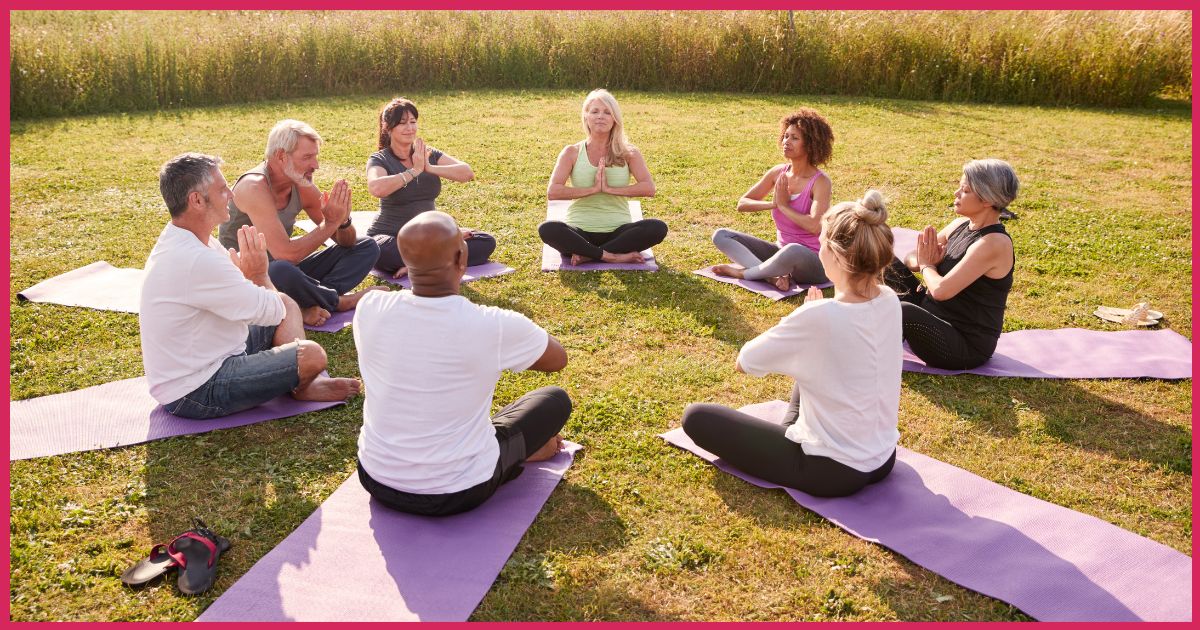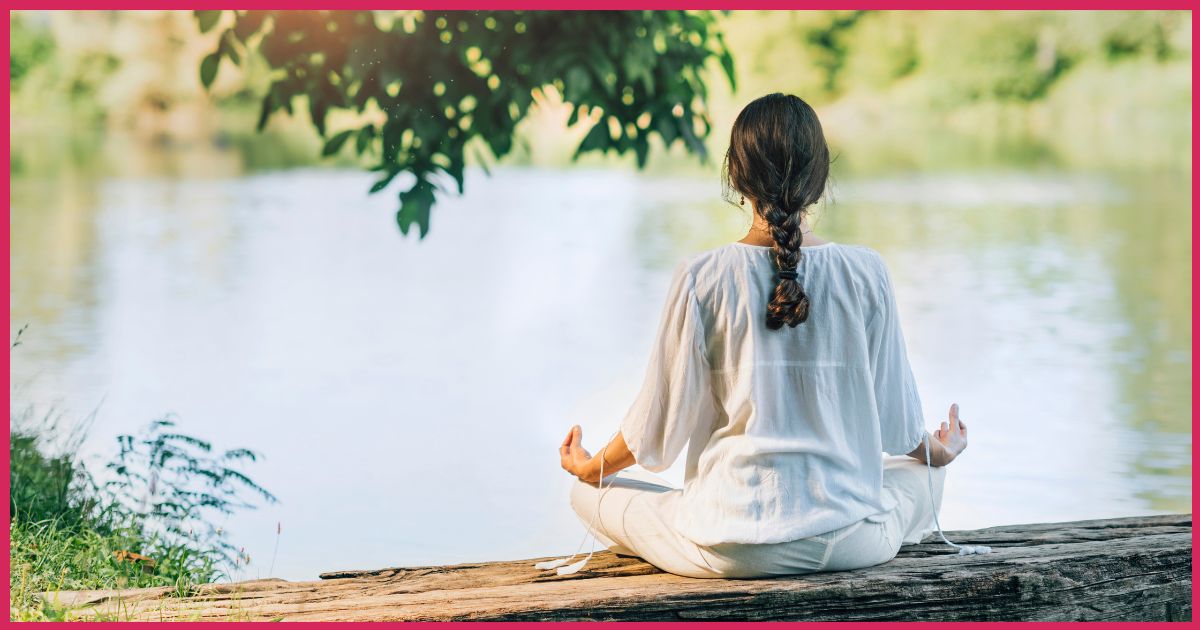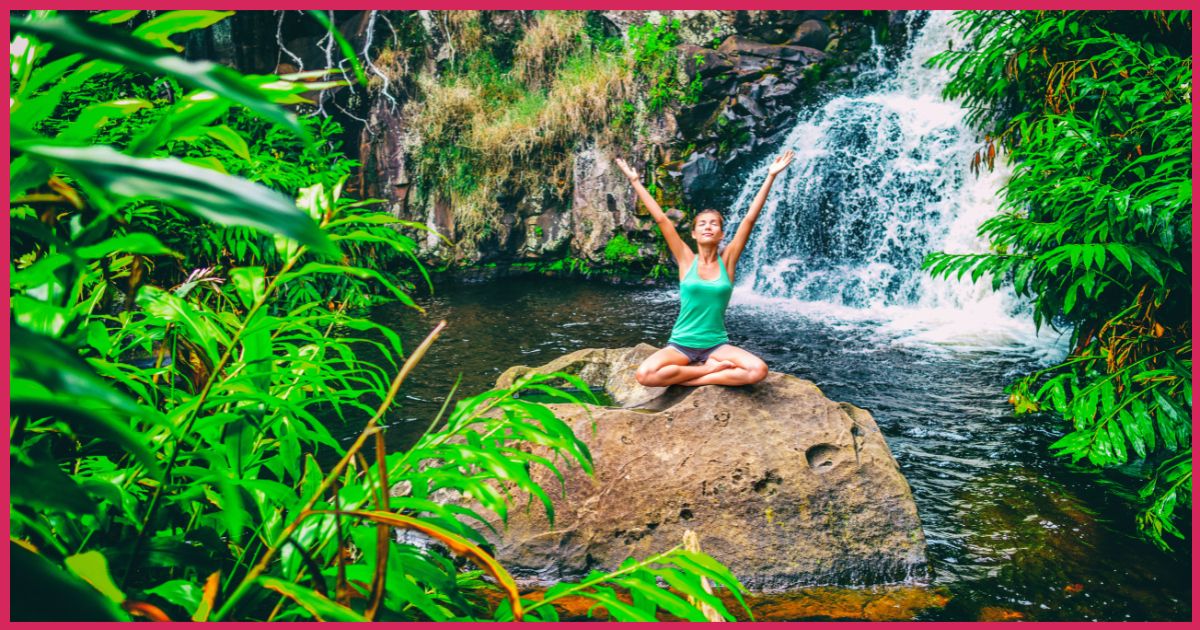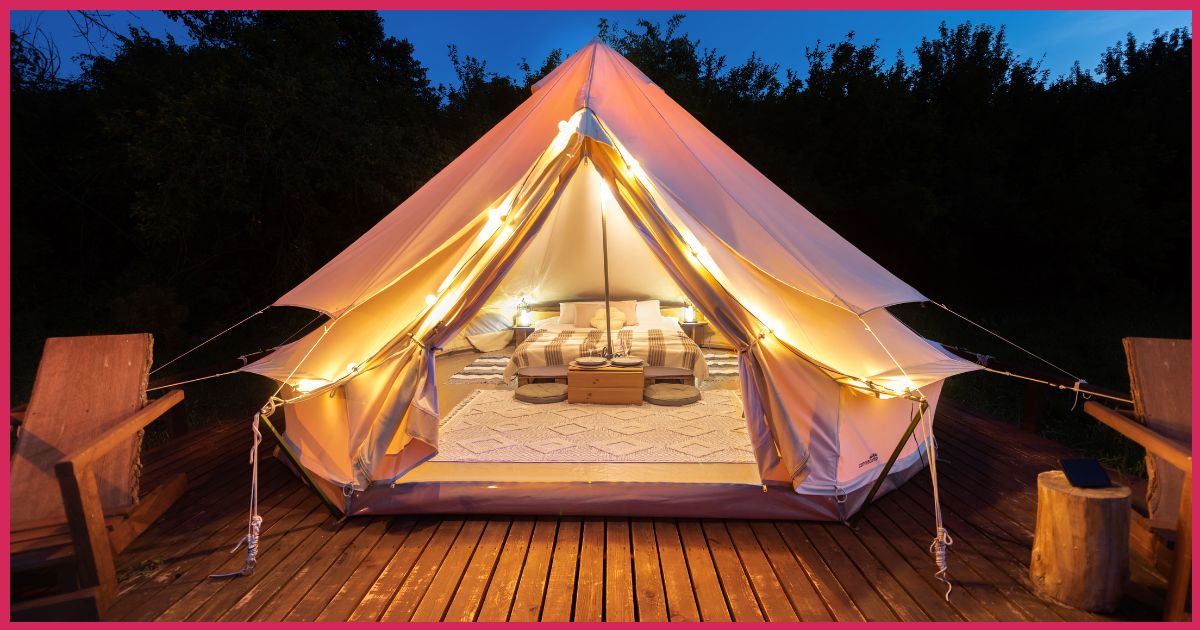What is a Wellness Retreat? Escape & Rejuvenate
A wellness retreat (also known as a rejuvenation retreat) is a structured programme designed to promote physical, mental, and spiritual health. These retreats offer a respite from daily life and typically take place in serene environments that facilitate relaxation.
The core aim of a wellness retreat is to provide participants with the opportunity to focus on their well-being, away from the distractions and stressors of their usual routine.
Participants engage in a variety of activities designed to enhance their overall health, such as yoga, meditation, spa treatments, and nutritional workshops. The settings for these retreats can vary widely, from luxurious resorts to more modest accommodations in natural settings.
Regardless of the location, the emphasis is on creating an atmosphere where individuals can concentrate on self-care and find a sense of balance.
Wellness getaways often include personalised programs that cater to the specific needs and preferences of each attendee. Professionals such as nutritionists, fitness instructors, and therapists may be on hand to provide guidance and support.
By the end of the retreat, attendees are expected to leave not only feeling rejuvenated but also equipped with practical tools and insights that can be integrated into their daily routines to maintain long-term health and relaxation.
Essence of Wellness Retreats
Wellness retreats represent a dedicated space for individuals seeking to enhance their well-being through a variety of therapeutic and reflective practices.

Defining Wellness Retreats
A wellness retreat provides a structured environment where individuals can focus on their personal health and well-being. These retreats typically offer a combination of activities such as yoga, meditation, spa treatments, and nutritious meals to promote healing and growth.
Historical Development
The concept of wellness retreats has roots in ancient traditions. Historically, such retreats were often aligned with the natural hot springs and were recognised for their healing properties. They have evolved from these natural health sanctuaries to incorporate a broader scope of wellness retreat activities.
Modern Relevance and Trends
In contemporary society, wellness retreats have seen a significant uptake as people increasingly value self-care. Modern retreats often feature programmes tailored to stress relief, fitness, and emotional well-being. They incorporate current trends such as digital detoxes, eco-conscious living, and personalised wellness coaching.
Core Components of a Wellness Retreat
Wellness retreats focus on rejuvenation and balance, incorporating holistic practices to enhance physical, mental, and emotional health. They offer a blend of activities designed for self-improvement and relaxation.

Yoga and Meditation
Participants engage in yoga to improve flexibility, strength, and balance. Daily classes cater to all levels, ensuring accessibility for beginners and challenge for advanced practitioners.
Meditation sessions complement yoga, fostering mindfulness and stress reduction. They typically occur in serene settings, amplifying the benefits of the practice.
- Yoga: Classes range from Hatha to Vinyasa and restorative yoga.
- Meditation: Techniques include guided imagery, breath work, and silent reflection.
Massage and Spa Treatments
Massage therapies are a staple at wellbeing retreats, providing physical and mental relaxation. They help release tension in the body and improve circulation.
Spa treatments may include facials, body wraps, and exfoliations, utilising natural and organic products.
- Spa Treatments: Options such as thermal therapy, aromatherapy, and hydrotherapy.
- Saunas and steam rooms: Amenities designed to detoxify the body and promote relaxation.
Therapies and Healing Workshops
Retreats often offer various therapy sessions, ranging from traditional counselling to alternative healing modalities like Reiki or sound therapy.
Workshops aim to equip guests with tools for personal development, focusing on topics such as nutrition, stress management, and self-care techniques. Retreats for mental rejuvenation have been steadily on the rise in recent years, as more and more people find the importance in mental health on conjunction with their overall wellbeing.
- Therapies: Including one-on-one sessions and group therapy.
- Workshops: Interactive sessions focusing on health and wellness education.
Nature and Outdoor Activities
Connection with nature is a cornerstone of wellness retreats. Activities may include forest bathing, which encourages immersion in the natural environment, or hiking expeditions to promote physical fitness and mental clarity.
For those retreats that focus primarily on fitness, you might be after 'fitness retreats' that specialise in this area.
- Nature Activities: Walks, nature observation, and outdoor meditation.
- Hiking: Guided trails of varying difficulties, often through picturesque landscapes.
Health and Nutrition Focus
Wellness retreats often prioritise health and nutrition, ensuring that participants receive well-balanced, nutrient-dense meals tailored to enhance wellbeing.
These retreats typically offer specialised dietary programs and focus on organic and raw food practices, accommodating a variety of dietary preferences including vegan and vegetarian options.

Dietary Programmes and Nutrition
In these retreats, dietary programmes are carefully designed by nutritionists to support participants' health goals. These programmes may include detoxification regimens, balanced meal plans for weight management, or diets to support gut health.
Nutrition education is also typically provided to empower individuals with knowledge about macronutrients and micronutrients necessary for optimal health.
- Detoxification Regimens: Green juices, smoothies, and herbal teas
- Weight Management: Portion-controlled meals, high in protein and fibre
- Gut Health: Prebiotic and probiotic-rich foods
Vegan and Vegetarian Options
Catering to all dietary needs, wellness retreats often offer an array of vegan and vegetarian meals. These meals are designed to be as nutrient-rich as possible, combining whole grains, legumes, nuts, seeds, fruits, and vegetables to create a balanced diet.
- Vegan Menu: Tofu stir-fry, quinoa salad, chickpea curries
- Vegetarian Menu: Vegetable lasagne, lentil shepherd's pie, egg frittatas
Organic and Raw Food Practices
Retreats may emphasise organic food practices to ensure participants consume produce free from pesticides and chemicals.
By incorporating raw food into the diet, retreats aim to preserve enzymes, vitamins, and minerals that are often lost during cooking. Raw food staples include:
- Salads: Mixed greens with sprouted seeds
- Cold-pressed Juices: Variety of vegetable and fruit combinations
- Snacks: Raw nuts, fruit bars, and vegetable chips
Types of Wellness Retreats
Wellness retreats cater to a variety of preferences, offering unique experiences from the opulence of luxury resorts to the tranquillity of meditation havens. Travellers can select a retreat that aligns with their health goals and interests.

Luxury Wellness Retreats
Luxury wellness retreats offer an escape to some of the most exquisite destinations in the world. They typically combine fitness, spa treatments, and gourmet dining experiences.
For example, the scenic coast of Tuscany, Italy, is home to retreats that boast state-of-the-art facilities and personalised wellness programmes. In the Caribbean, travellers can indulge in holistic therapies amidst turquoise waters and white sand beaches.
Dedicated Yoga Retreats
At dedicated yoga retreats, participants immerse themselves in yoga practice. These retreats can be found in serene locations like the Sonoran Desert in North America or the peaceful countryside of North Yorkshire, UK.
They focus on various yoga styles, from Vinyasa to Hatha, and often include vegetarian or vegan meal plans tailored to enhance the physical and spiritual yoga experience.
Meditation and Mindfulness Retreats
For those seeking mental clarity, meditation and mindfulness retreats in locales such as Greece or the quiet coastal settings of Dorset, UK, provide a sanctuary for introspection.
Sessions on mindfulness, deep breathing techniques, and guided meditations help individuals develop a practice that can reduce stress and promote mental wellbeing.
Budget and Short Retreats
Wellness doesn't have to be expensive or time-consuming. Budget and short retreats make wellness accessible to more people.
They offer condensed programmes that can range from a weekend to a few days, often within less remote locations to help reduce travel time and costs.
Destination-Specific Retreats
Destination-specific retreats explore local traditions and healing practices. In Finland, visitors can experience Nordic spa treatments and forest bathing, tapping into the healing powers of nature.
These retreats often highlight the unique attributes of the destination, allowing participants to connect with the culture while pursuing wellness.
Wellness Retreat Activities
Wellness retreats are curated to offer a balance of activities that cater to physical health, mental well-being, and spiritual growth. Participants have the opportunity to engage in a variety of sessions designed to revitalise the body and mind.

Cultural and Artistic Workshops
Cultural and artistic workshops serve as a space for creative expression and learning. Retreat-goers may participate in painting classes, pottery crafting, or indigenous art sessions.
These activities not only stimulate creativity but also foster a deeper connection with the local culture and arts.
Fitness and Gym Sessions
Fitness classes and gym sessions are integral to most wellness retreats. They typically offer a range of physical activities including yoga, Pilates, tai chi, and high-intensity interval training (HIIT).
These sessions are tailored to various fitness levels and aim to improve participants' strength, flexibility, and cardiovascular health.
Sound Healing and Shamanic Practices
Sound healing, utilising instruments like Tibetan singing bowls, and shamanic practices are designed to heal and soothe. They involve rituals and ceremonies that may include drumming, chanting, and the use of sacred herbs.
These practices aim to align attendees with nature's rhythm and can lead to profound inner transformation.
Mindful Sharing Circles
Mindful sharing circles provide a supportive environment for individuals to share experiences and reflections. This practice often encourages openness and emotional processing, creating a sense of community amongst participants.
It allows individuals to listen actively and speak from the heart within a trusting group setting.
Planning and Choosing a Retreat
When selecting a wellness retreat, it's important to clearly define what one hopes to achieve, review the amenities and services provided, and consider the level of community and privacy offered.

Determining Personal Goals
An individual should begin by establishing specific wellness goals. Whether it's stress reduction, fitness improvement, or a desire for personal reflection, understanding these objectives will guide the choice of retreat.
For example, if the goal is balance and rejuvenation, one might look for retreats that offer yoga, meditation, and nutritional guidance.
Assessing Facilities and Services
It's crucial to investigate the facilities and services of a potential retreat. You should consider:
- The types of accommodations available: Options may range from private rooms to shared accommodations.
- The variety of treatments and programmes offered: These should align with personal wellness goals.
- The qualification of staff: Ensuring they are experienced professionals.
Understanding Inclusivity and Shared Spaces
Wellness retreats often cater to different types of guests, from solo travellers to groups.
When evaluating inclusivity:
- Determine whether the retreat is designed to be inclusive, accommodating a diverse group of attendees.
- Shared spaces can offer benefits, such as community support and shared experiences, which can be a significant factor for those seeking connection.
In choosing a retreat, it's vital to find a balance between personal comfort, the chance to meet others, and the quality of the wellness experience on offer.
Retreat Benefits and Impact
Wellness retreats are designed to offer profound benefits for participants, focusing on their physical, emotional, and overall well-being.
These structured programmes often unite various health-promoting activities and therapies aiming to initiate sustainable lifestyle changes.

Physical and Mental Health Benefits
Wellness retreats tend to facilitate a holistic approach to health, incorporating activities that boost physical fitness, such as yoga and hiking, alongside those that foster mental clarity, like meditation and stress management workshops.
They often include a balanced dietary plan, at times aligned with a detox retreat, to support the body's natural detoxification processes.
- Physical Health Enhancements:
- Improved sleep quality
- Increased energy levels
- Mental Health Improvements:
- Reduction in stress and anxiety
- Enhanced cognitive function and focus
Emotional Healing and Rejuvenation
Participants at a wellness retreat can experience emotional healing, an aspect that is central to the concept of a body and soul retreat.
These retreats offer safe environments for reflection, allowing individuals to process and release emotional burdens through practices like guided imagery or one-on-one counselling.
- Key Aspects of Emotional Healing:
- Increased emotional awareness
- Development of coping strategies
- Rejuvenation Outcomes:
- A sense of inner peace
- Renewed energy and vigour
Sustainable Well-being and Lifestyle Changes
A primary aim of wellness retreats is to instigate long-term changes that participants can incorporate into their daily lives, thereby improving their well-being well beyond the duration of the retreat.
Through education on nutrition, exercise, and mindfulness, attendees are equipped with the knowledge and tools needed to maintain a balanced lifestyle.
- Lifestyle Changes for Sustained Well-being:
- Adoption of a nutritious diet
- Integration of regular physical activity
- Measures of Sustainable Impact:
- Consistent self-care routines
- Ongoing mindfulness practices
International Retreat Locations
Wellness retreats can be found in stunning locations around the globe. They offer tranquil settings ranging from the sun-kissed Mediterranean shorelines to the secluded mountain ranges or lush Caribbean tropics, all aiming to rejuvenate both body and mind.

Europe and the Mediterranean
In Europe, wellness seekers can immerse themselves in the breath-taking views of the Greek islands or the verdant Tuscany hills.
Amanzoe in Greece invites guests to find serenity among ancient olive groves and the calm Aegean sea. Tuscany's rolling hills and vineyards offer luxurious escapes where Italian gastronomy complements the restorative experience.
|
Location |
Setting |
Experience |
|
Amanzoe, Greece |
Olive Groves & Sea |
Ancient Healing |
|
Tuscany |
Vineyards & Hills |
Gastronomic Delight |
Exotic Retreats in Asia and the Caribbean
In Asia, Thailand's forest-clad mountains or Bali's tranquil rice paddies provide idyllic backgrounds for a holistic wellness journey.
The Caribbean, with crystal-clear waters and white sandy beaches, offers island getaways at places like St. Lucia, where the combination of ocean and rainforest promotes profound relaxation.
|
Region |
Description |
Highlight |
|
Thailand |
Forest Mountains |
Holistic Wellness |
|
Bali |
Rice Paddies & Temples |
Spiritual Harmony |
|
Caribbean |
Beaches & Clear Waters |
Island Serenity |
Retreats in the Americas
Travellers to the Americas can experience the vast open landscapes of the Sonoran Desert in the USA, which boasts a unique environment for empowering retreats.
For those seeking a colder but equally majestic retreat, Lake Louise in the Canadian Rockies presents an awe-inspiring setting to disconnect and recharge.
- Sonoran Desert, USA: Desolate Beauty & Self-Discovery
- Lake Louise, Canada: Mountain Majesty & Serene Waters
Tranquil Retreats in the British Countryside
In the UK, the serene countryside of Devon, Suffolk, Berkshire, Gloucestershire, and the Scottish Highlands offers a peaceful haven away from the hectic pace of daily life.
Each county provides charming rural retreats set amidst forests and lakes, ideal for a New Year's rejuvenation or a simple weekend escape.
- Devon: Coastal Cliffs & Lush Valleys
- Suffolk: Gentle Hills & Medieval Villages
- Gloucestershire: Ancient Woodlands
- Scottish Highlands: Rugged Mountains & Deep Lochs
Conclusion
A wellness retreat is designed to support individuals in their pursuit of a healthier lifestyle, focusing on physical and emotional health.
They offer structured programmes tailored to enhance well-being, underpinned by expert guidance.
The serene environment typically provided by these retreats contributes to stress reduction and rejuvenation.
- Participants have access to a variety of activities, such as yoga, meditation, and fitness sessions.
- Nutritional workshops and cooking classes emphasise the importance of a balanced diet.
- One-on-one counselling sessions with professionals may be available to address personal emotional health concerns.
The benefits reported by attendees often include improved mood, increased energy levels, and a stronger sense of inner peace.
While the effects can vary from person to person, the overarching aim remains consistent: to foster a holistic approach to health that participants can integrate into their daily lives.
In choosing a wellness retreat, individuals should consider their specific health goals and select a program that aligns with their needs.
Careful evaluation ensures a rewarding experience that contributes meaningfully to one’s overall well-being.




